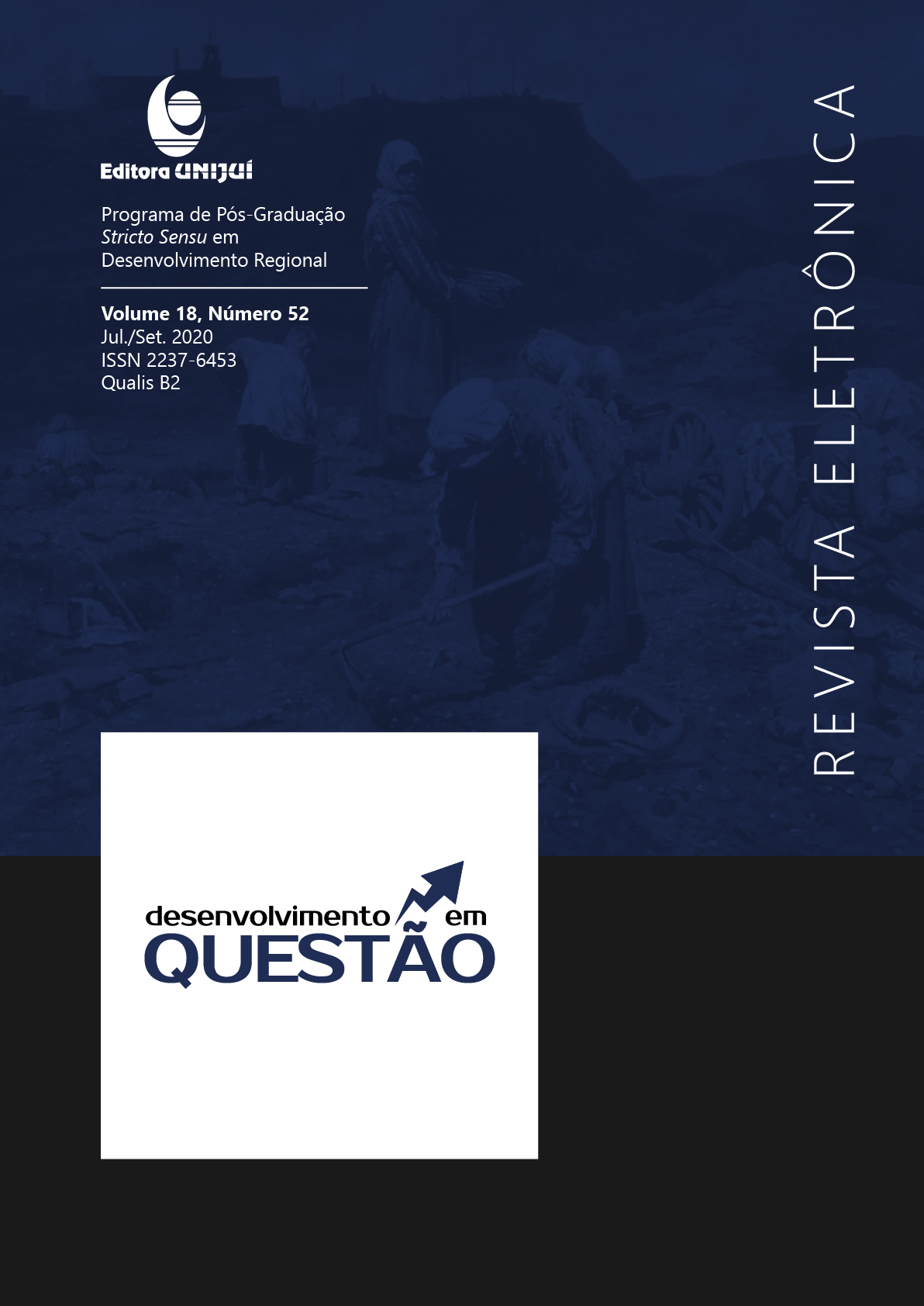A Relação Universidade-Empresas Traz Prejuízo ao Desempenho Acadêmico de uma Universidade Pública?
DOI:
https://doi.org/10.21527/2237-6453.2020.52.267-285Palavras-chave:
Agronegócio, Ciência Tecnologia & Inovação, Ecossistema, Hélice TrípliceResumo
Esta pesquisa explorou a relação Universidade-Empresas a partir de um estudo de caso da Faculdade de Ciências Agrárias e Veterinárias (FCAV), Universidade Estadual Paulista (UNESP), visando entender quais os efeitos dessa aproximação no desempenho acadêmico dos docentes de uma universidade pública. Para tanto, avaliou-se comparativamente a performance de docentes com parcerias junto a instituições de mercado e aqueles que não o fazem, por meio da Fundação de Apoio a Pesquisa, Ensino e Extensão (FUNEP). A unidade de análise foram os docentes vinculados aos 11 Programas de Pós-Graduação da FCAV, com escopo temporal de 5 anos (2011 a 2016). As variáveis foram construídas a partir da fundamentação teórica do estudo. Os dados foram tratados mediante análise discriminante. Os 169 docentes que possuem projetos junto ao mercado constituem o Grupo 1. Os 127 que não apresentaram projetos estão no Grupo 0. Os resultados sinalizam que o envolvimento dos docentes em projetos com empresas para geração de tecnologia não concorrem com os outros objetivos da FCAV. Verificou-se que em nenhuma das variáveis estudadas a produção dos docentes com recursos junto ao mercado é inferior aos que não possuem, ao contrário, para algumas variáveis, os resultados foram superiores. Constatou-se que os docentes com projetos adjuntos a FUNEP são os que mais captam recursos financeiros. Concluiu-se que docentes com projetos junto a FUNEP quando não espelham o mesmo desempenho daqueles que não o fazem, apresentam resultados superiores, confirmando que a relação Universidade-Empresas não compromete a produtividade acadêmica desses profissionais.
Downloads
Publicado
Como Citar
Edição
Seção
Licença
Ao publicar na Revista Desenvolvimento em Questão, os autores concordam com os seguintes termos:
Os trabalhos seguem a licença Creative Commons Atribuição 4.0 Internacional (CC BY 4.0), que permite:
Compartilhar — copiar e redistribuir o material em qualquer meio ou formato;
Adaptar — remixar, transformar e criar a partir do material para qualquer fim, inclusive comercial.
Essas permissões são irrevogáveis, desde que respeitados os seguintes termos:
Atribuição — Atribuição — os autores devem ser devidamente creditados, com link para a licença e indicação de eventuais alterações realizadas.
Sem restrições adicionais — não podem ser aplicadas condições legais ou tecnológicas que restrinjam o uso permitido pela licença.
Avisos:
A licença não se aplica a elementos em domínio público ou cobertos por exceções legais.
A licença não garante todos os direitos necessários para usos específicos (ex.: direitos de imagem, privacidade ou morais).
A revista não se responsabiliza pelas opiniões expressas nos artigos, que são de exclusiva responsabilidade dos autores. O Editor, com o apoio do Comitê Editorial, reserva-se o direito de sugerir ou solicitar modificações quando necessário.
Somente serão aceitos artigos científicos originais, com resultados de pesquisas de interesse que não tenham sido publicados nem submetidos simultaneamente a outro periódico com o mesmo objetivo.
A menção a marcas comerciais ou produtos específicos destina-se apenas à identificação, sem qualquer vínculo promocional por parte dos autores ou da revista.
Contrato de Licença (para artigos publicados a partir de 2025): Os autores mantêm os direitos autorais sobre seu artigo, e concedem a Revista Desenvolvimento em Questão o direito de primeira publicação.











